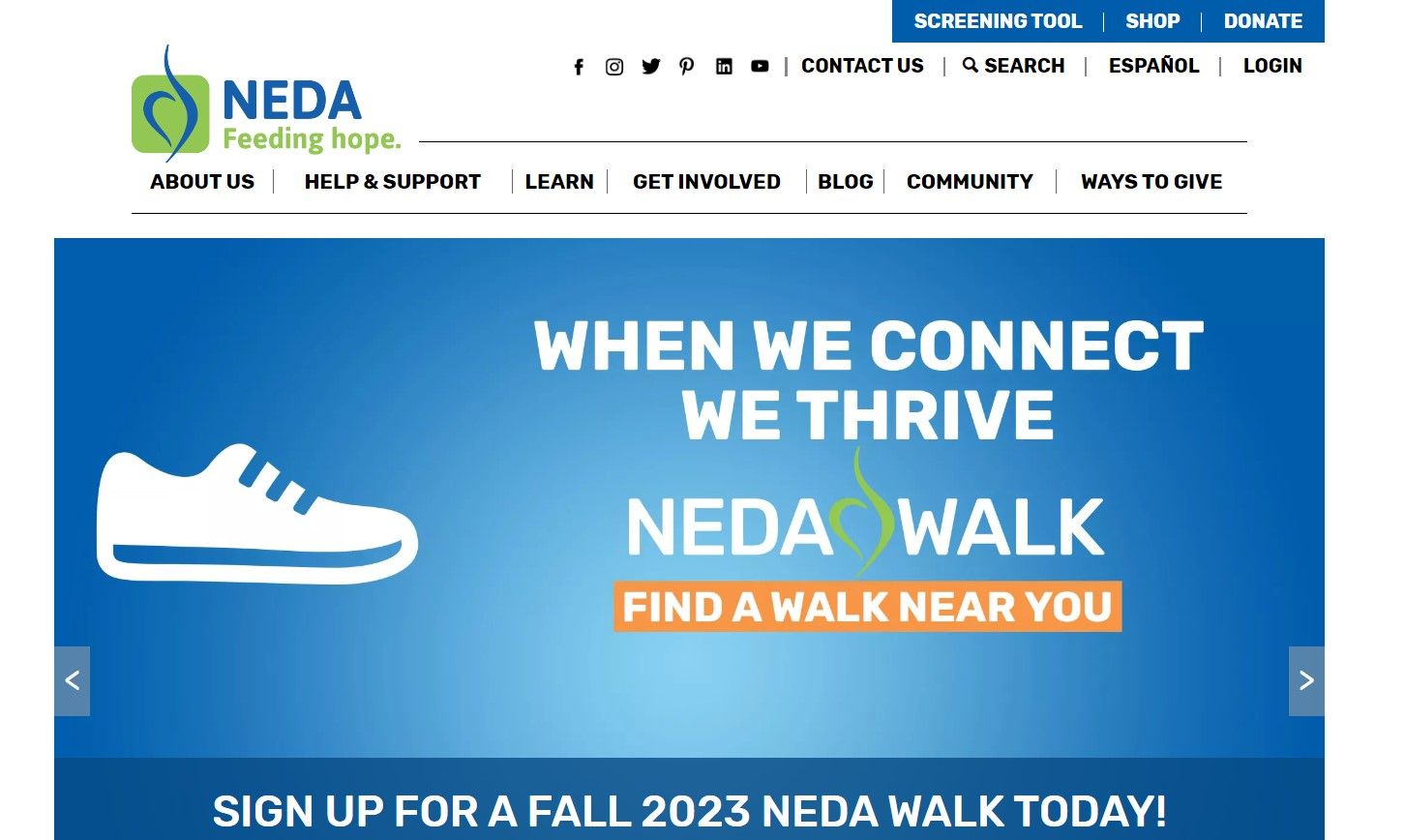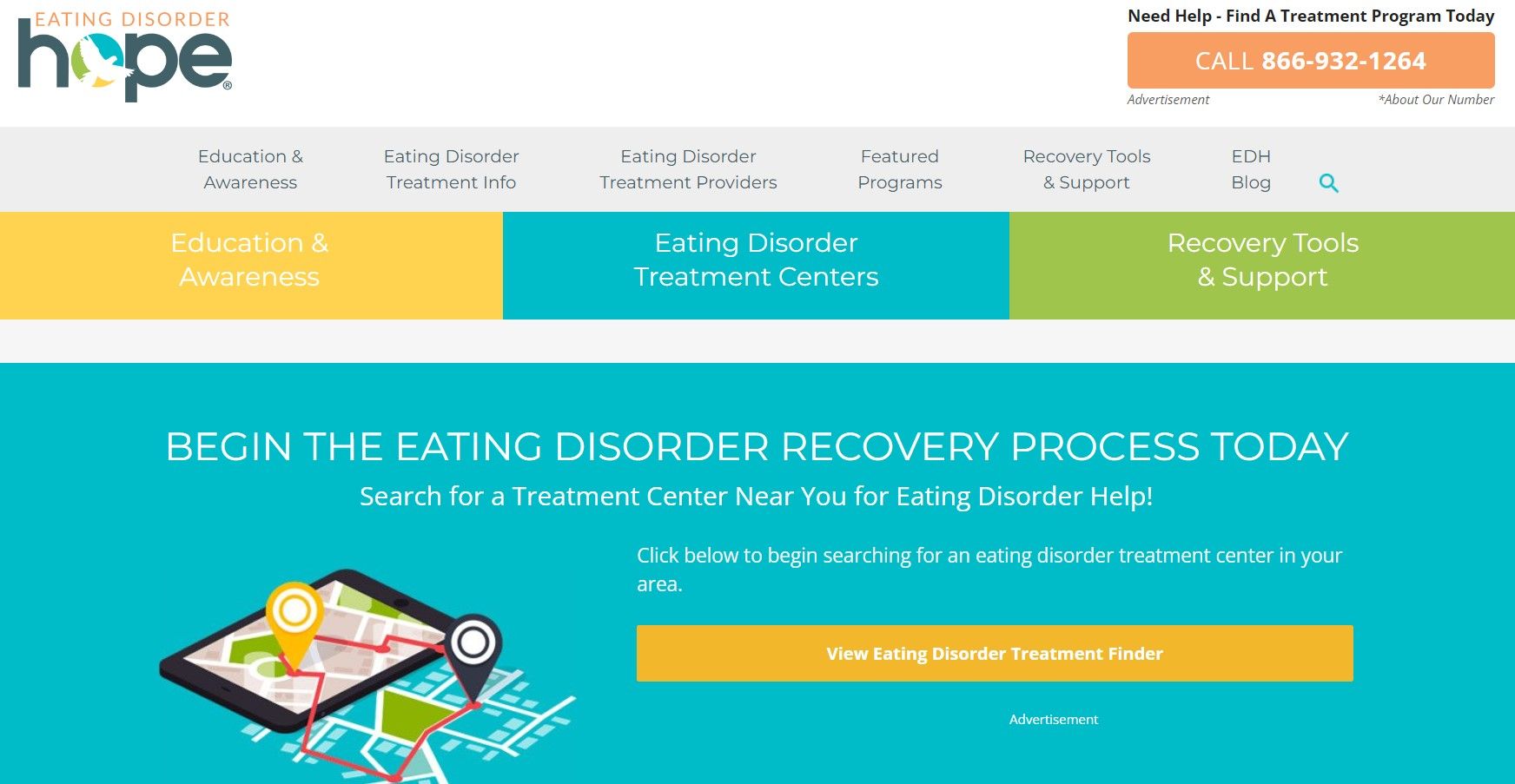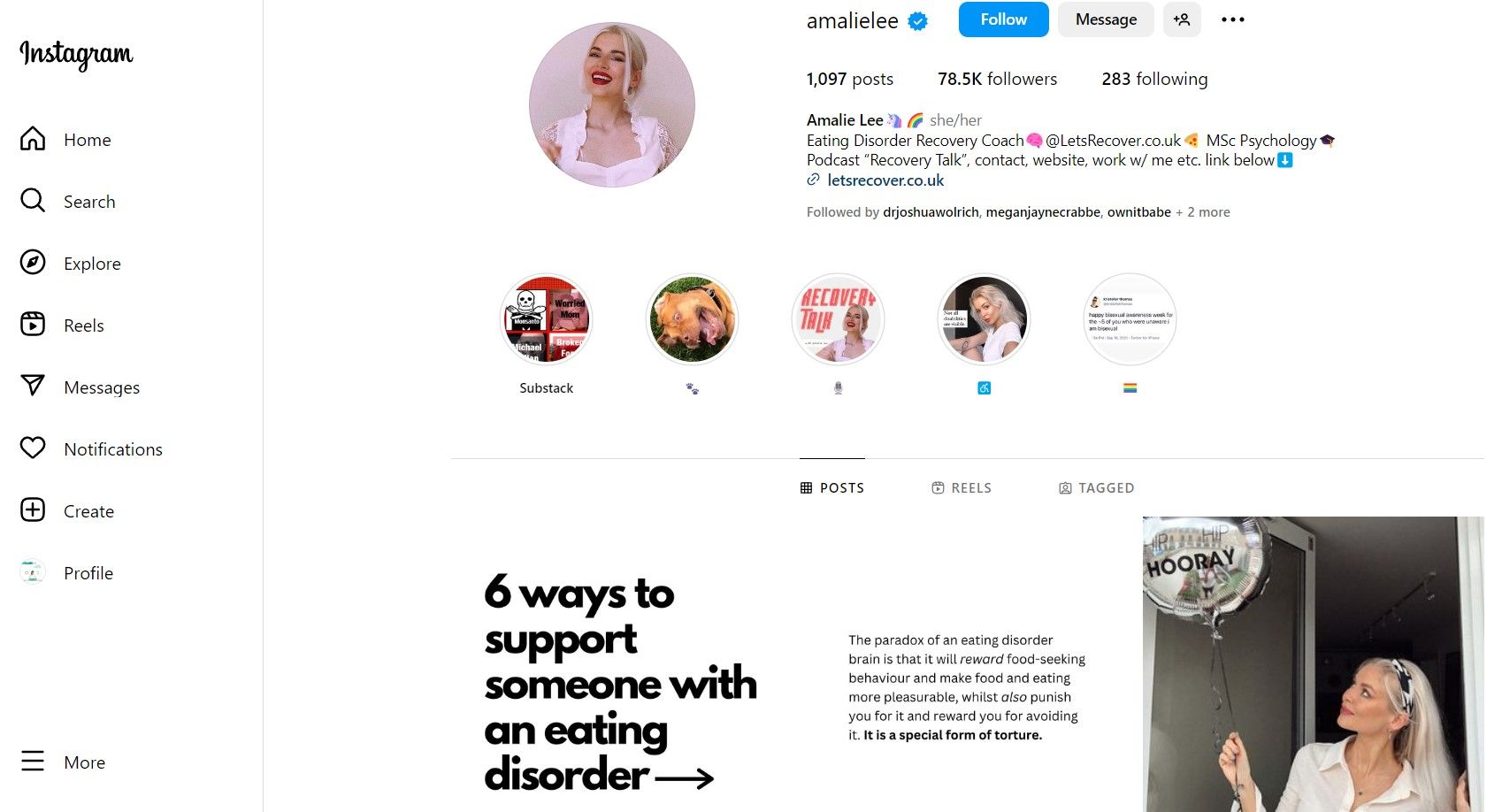Eating disorders can affect anyone. Despite common misconceptions about eating disorders, you don’t need to look a certain way or come from a specific background to gain support and treatment. If you or a loved one is struggling with an eating disorder, reaching out and getting the help you or they need is important.
Whether you need advice from an established eating disorder charity, nutritionist, or therapist—or if you want to educate yourself and seek general support from online communities—the following resources and digital tools can help you gain support for eating disorders.
1. Project HEAL
Project HEAL is a leading non-profit organization that works tirelessly to raise awareness, advocate for individuals, and remove systemic, healthcare, and financial barriers to ensure that all Americans have equitable access to eating disorder treatment.
You can use Project HEAL to gain support for eating disorders in a number of ways:
- Learn about eating disorders. Navigate to the Learn section of the website to learn about the nuances of eating disorders, treatment options, barriers to healing, and the answers to frequently asked questions.
- Get treatment. The Services section provides four programs that you or a loved one can apply for eating disorder management and recovery. Use the handy flow chart to determine what type of support would be most suitable for your situation.
- Connect to the community. The Project HEAL blog provides insights into others’ experiences with eating disorders and recovery, helping to provide community support while highlighting the personal benefits of getting help. You can also connect to Project HEAL and its community on Facebook, Instagram, and X (formerly Twitter).
The founders of Project HEAL also run Equip—a virtual program that helps families recover from eating disorders at home.
2. National Eating Disorders Association (NEDA)
The National Eating Disorders Association (NEDA) is a large nonprofit that's dedicated to supporting affected individuals and families. NEDA also works towards prevention, cures, and access to eating disorder care for anyone struggling.
Use the navigation bar located at the top of the website to find each of these support tools:
- Help & Support. If you’re feeling overwhelmed, click Where do I Start? to find advice and information on eating disorders. You can also access a screening tool, treatment options, and help for recovery and relapse in this section of the website.
- Learn. This section is packed with invaluable resources. Read about all the nuances of eating disorders, from associated body image issues and warning signs and symptoms of eating disorders to statistics and research.
- Community. Discuss with or seek advice from others on the forum, connect via social media, or watch videos to learn more about eating disorder experiences.
NEDA also promotes and supports eating disorder awareness events, including Eating Disorders Awareness Weeks, NEDACon (a day of local engagement with experts and community members), and NEDA Walks. Head to the Get Involved section of the website to learn more.
3. Eating Disorder Hope
Established in 2005, Eating Disorder Hope is an online community that provides education, support, and resources for anyone with an eating disorder or body image issues. Recognizing that eating disorders affect a wider circle than just the person trying to recover, Eating Disorder Hope provides help and support to family members or close loved ones too.
Eating Disorder Hope offers the following tools to help with eating disorder recovery:
- Education and awareness. Learn about the different types of eating disorders, access key statistics and research studies, and find information on body image and associated disorders.
- Treatment finder. Learn about eating disorder recovery options and find treatment in your local state.
- Recovery tools and support. From recovery tips and self-help to books, videos, and other resources, find the support you need within this section of the Eating Disorder Hope website.
- Eating disorder support groups. Find a support group in your area to join in-person meet-ups as well as online interactions. The two main support groups are self-help and professionally operated support groups.
The Eating Disorder Blog opens up a wider discussion around eating disorders that can help you learn more about signs, causes, treatments, and more.
4. Find Eating Disorder and Recovery Support on Instagram
With open discussions about mental health issues on the rise, there are more social media accounts that share personal experiences of eating disorders. Registered professionals have also taken to social media platforms to spread awareness and share informed advice on eating disorder management.
On Instagram, you’ll find supportive accounts that discuss how, why, and where societal problems can trigger eating disorders, and offer improved perspectives and support to those who may not fit the “eating disorder stereotype.”
Take a look at these profiles to find safe spaces to explore and to learn more:
- All Bodies Recovery. Find a community of weight-inclusive support for eating disorder help and recovery. (Remember—you don’t need to fit a certain image to “qualify” for help!)
- The Mindset Nutritionist. UK-based nutritionist Jeanette Thompson-Wessen offers a safe space for all bodies and raises awareness about the unnecessary problems of anti-fat societies.
- Fitpros Against Weight Stigma. Fitness fans listen up: FPAWS campaigns against weight stigma and promotes more inclusive fitness environments for all bodies to participate in sports and exercise.
- Nadia Shabir. Creating eating disorder awareness in the Muslim world, Nadia Shabir’s profile is both educational and supportive.
- Amalie Lee. Eating disorder recovery coach Amalie holds an MSc in psychology and uses her Instagram profile to raise awareness, offer advice, and help those who have or are supporting someone who has an eating disorder.
If you find Instagram triggering to navigate, read our advice on how to optimize your Instagram for better mental health.
5. Recovery Record: Eating Disorder Management App
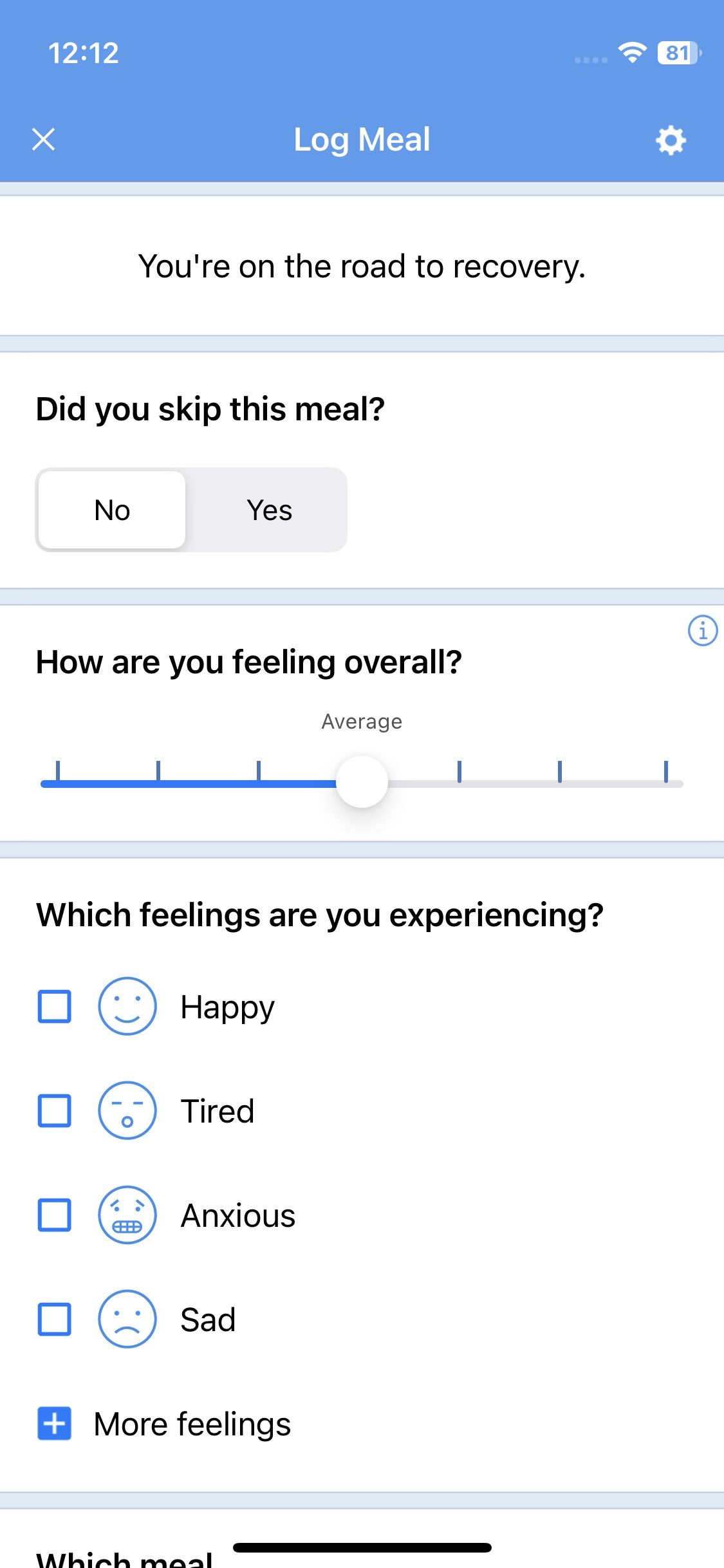
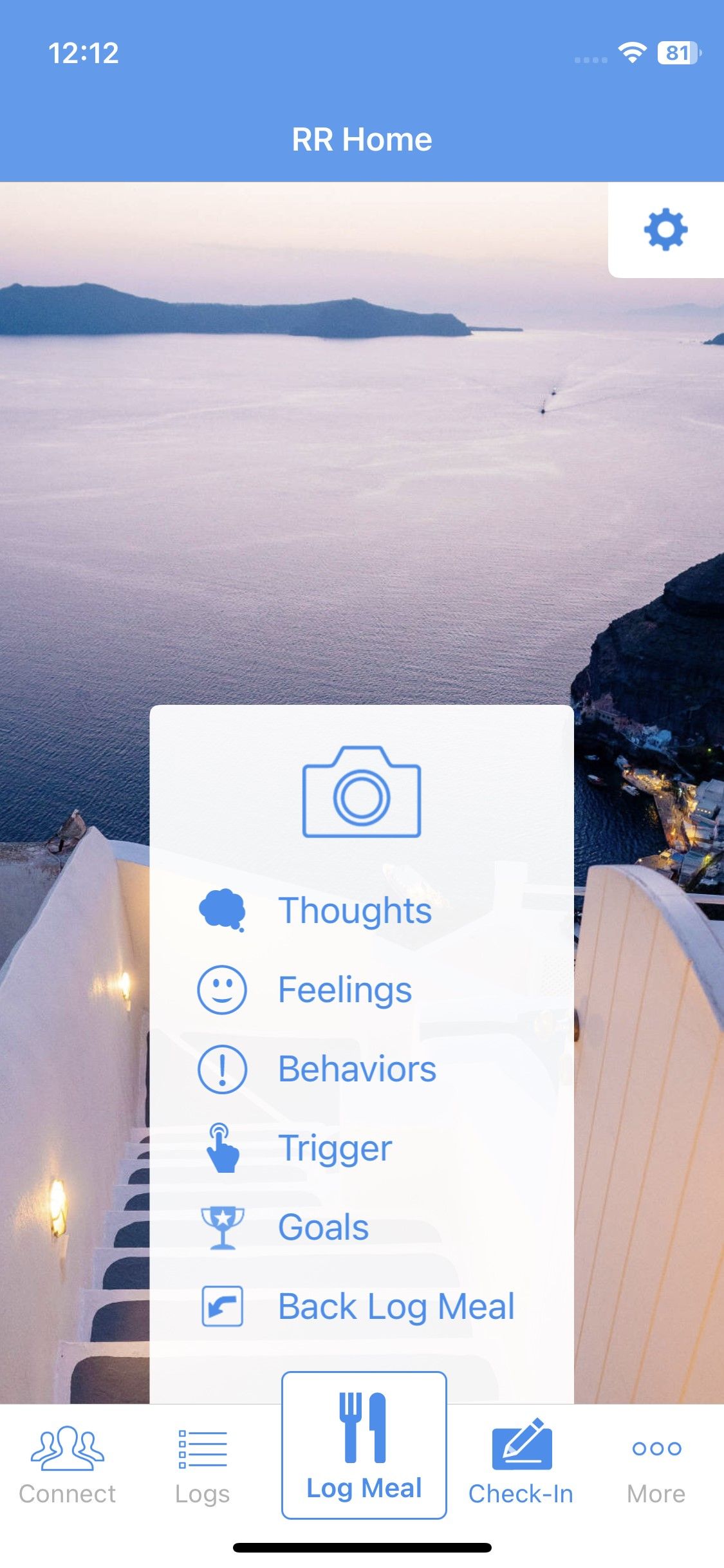
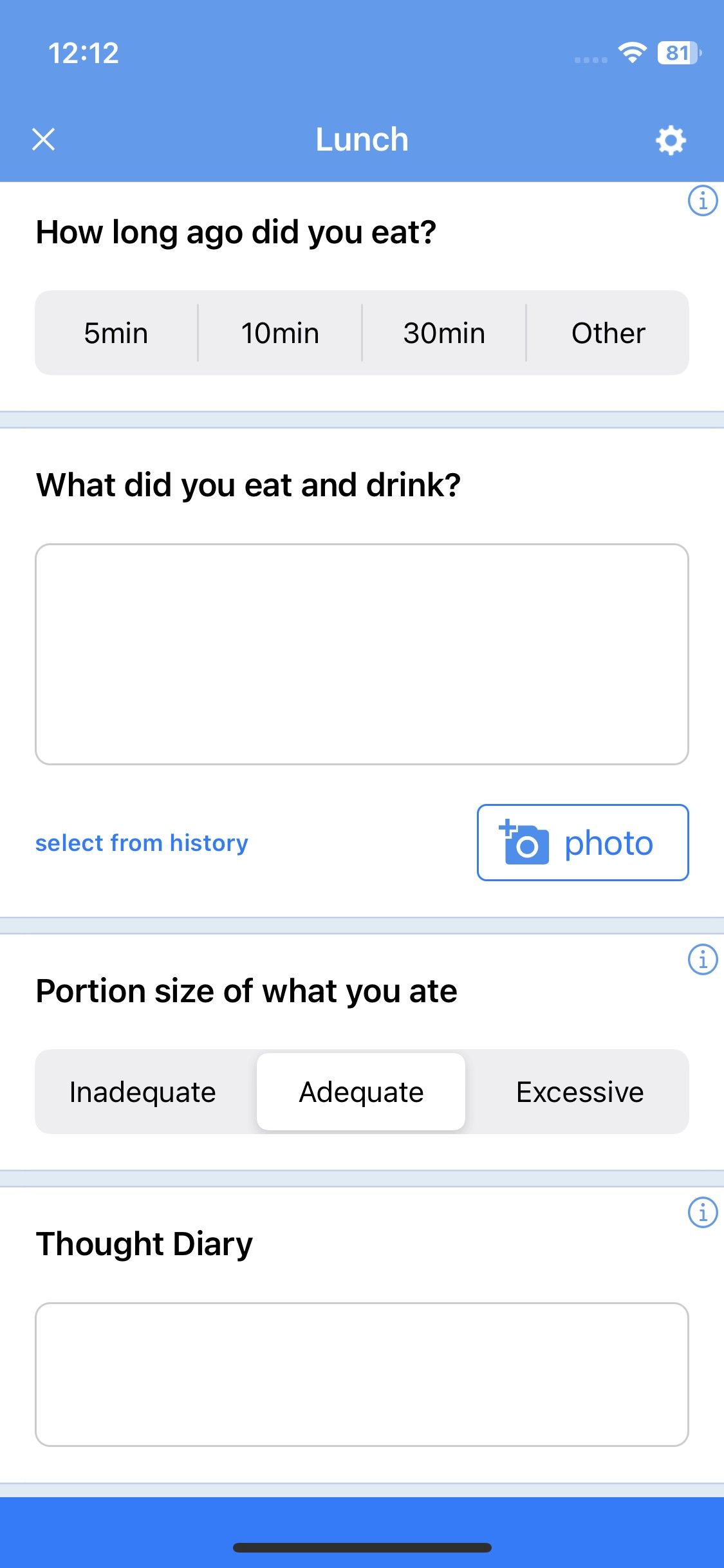
If you’re looking for assistance with eating disorder recovery, trying an app to help repair your relationship with food can be beneficial. You can use The Recovery Record app alone or with the support of a registered clinician or treatment team to help you manage and recover from an eating disorder.
Created by a team of psychologists and engineers, Recovery Record is built on a foundation of cognitive behavioral therapy (CBT) and monitoring techniques to help you recover from disordered eating behaviors.
Recovery Record allows you to log your meals and enter details about how you are feeling, who you ate with, and your thoughts alongside each entry. You can check in with thoughts, feelings, behaviors, and triggers to help create a diary of your eating disorder recovery progress. You can also save affirmations as you use the app to create a collection of inspirational images or messages to reflect on when you need additional support.
Download: Recovery Record: Eating Disorder Management for Android | iOS (Free)
Don’t Hesitate in Seeking Eating Disorder Support, Help, and Advice Online
It’s important to remember that you don’t need to “qualify” or meet certain criteria to gain help for an eating disorder. The online charities listed in this article recognize the barriers common misconceptions and historical stereotypes of eating disorders that can prevent individuals from gaining the help they need, and strive to offer you the support you deserve.
Using an app or diary can help you uncover unconscious patterns, thoughts, or behaviors that you can then manage and work towards healing as part of your eating disorder recovery.


